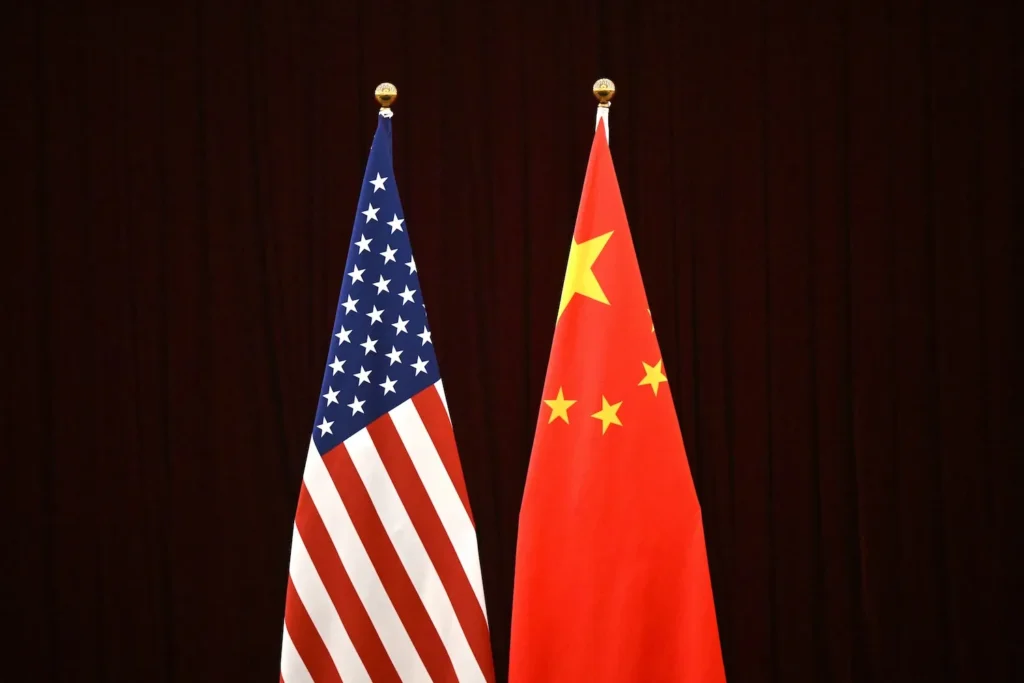The infiltration raises serious national security concerns in Washington.
A hack of U.S. telecommunications firms by Chinese government-linked actors has raised serious national security concerns in Washington. The infiltration targeted AT&T, Lumen, and Verizon, among others; it likely sought to uncover how U.S. agencies make use of the service providers for counterintelligence measures, such as wiretapping, against Chinese spying in the United States.
China denied any involvement in the hacking, but Washington has repeatedly issued warnings to Beijing about the activities of the group blamed for the attack, Volt Typhoon. The group was first identified by Microsoft’s China team in May 2023. (Staff on large technology companies’ country-specific security teams tend to have previous experience in Western intelligence agencies.)
The U.S. warnings have done nothing to dissuade Chinese state-sponsored hackers—and it sometimes seems as if such cyber-contestation is asymmetric. There is regular news in the United States about serious hacks by China—including a notorious 2015 breach that exposed the data of millions of U.S. government employees.
In fact, the failure of China to stick to the 2015 cybersecurity agreement signed with the Obama administration—despite initial hopes—is an underrated factor in the sharp degeneration of U.S.-China relations in recent years. The U.S. Justice Department has indicted multiple members of Chinese hacking groups, while the FBI and tech security teams have unearthed major botnets.
Yet the United States has a powerful and sophisticated offensive cybercapability overseen by the military, the National Security Agency, and other groups. The gulf in media coverage when it comes to U.S.-China cyberconflict may not reflect reality: China has rarely publicly reported on U.S. hacking attempts in the past.
Reports on major U.S. government-linked operations that target China (such as Project Sauron or the Equation Group) often came from the Russian cybersecurity firm Kaspersky, itself allegedly linked to Moscow’s Federal Security Service.
However, that has changed somewhat since the COVID-19 pandemic, with China making more frequent accusations of U.S. cyberattacks through the National Computer Virus Emergency Response Center, along with private firms. Yet Beijing still only publicly discusses minor intrusions, in part because of a culture of opaqueness—especially when it comes to official failures.
China’s leadership wants to portray the country as a victim of U.S. aggression, but it is also reluctant to admit that the aggression may have been successful. Beijing’s reports on U.S. cyberactivity also tend toward the politically melodramatic, linking what they say are CIA-sponsored efforts to so-called color revolutions. They have also often focused on attacking U.S. claims.
All of this reflects a broader problem within Chinese intelligence: the absence of independent analysis. As Peter Mattis and Matthew Brazil note in their book on Chinese Communist Party espionage, “foreign targets are viewed in the worst possible light,” and Chinese intelligence services “have internalized that perspective and indeed may be the chief instrument through which Mao Zedong’s paranoia is reinforced.”
There is also a recurring problem with both Chinese and U.S. intelligence gained from hacks: The sheer volume of data in some cases makes processing it more difficult than acquiring it.
Moreover, language presents a challenge. Internal security concerns in both countries hamper the ability to recruit English- and Chinese-speaking staff, respectively. The U.S. clearance process discriminates against Asian Americans, while the Chinese military is wary of contact with foreigners.
A lot of Chinese hacking efforts have routine state-directed goals, such as technological theft, monitoring geopolitical opponents, or—most worryingly—threatening infrastructure. But Beijing is also unusually focused on monitoring the Chinese diaspora, which it sees as a chief threat to political security at home (especially members of ethnic minority groups).
That is where hacking crosses over most with China’s everyday influence efforts, such as those revealed by recent investigations into some New York political figures—who are accused of disrupting recognition of Taiwanese events, disparaging dissidents, and avoiding meetings with figures such as the Dalai Lama.
We give you energy news and help invest in energy projects too, click here to learn more

